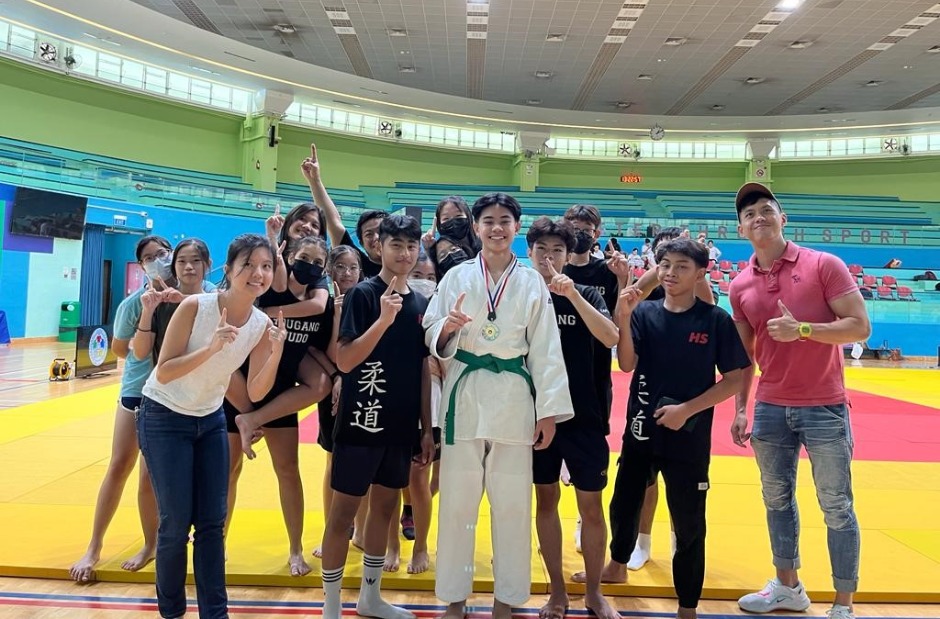Empowering your kids with trust
24 Oct 2019
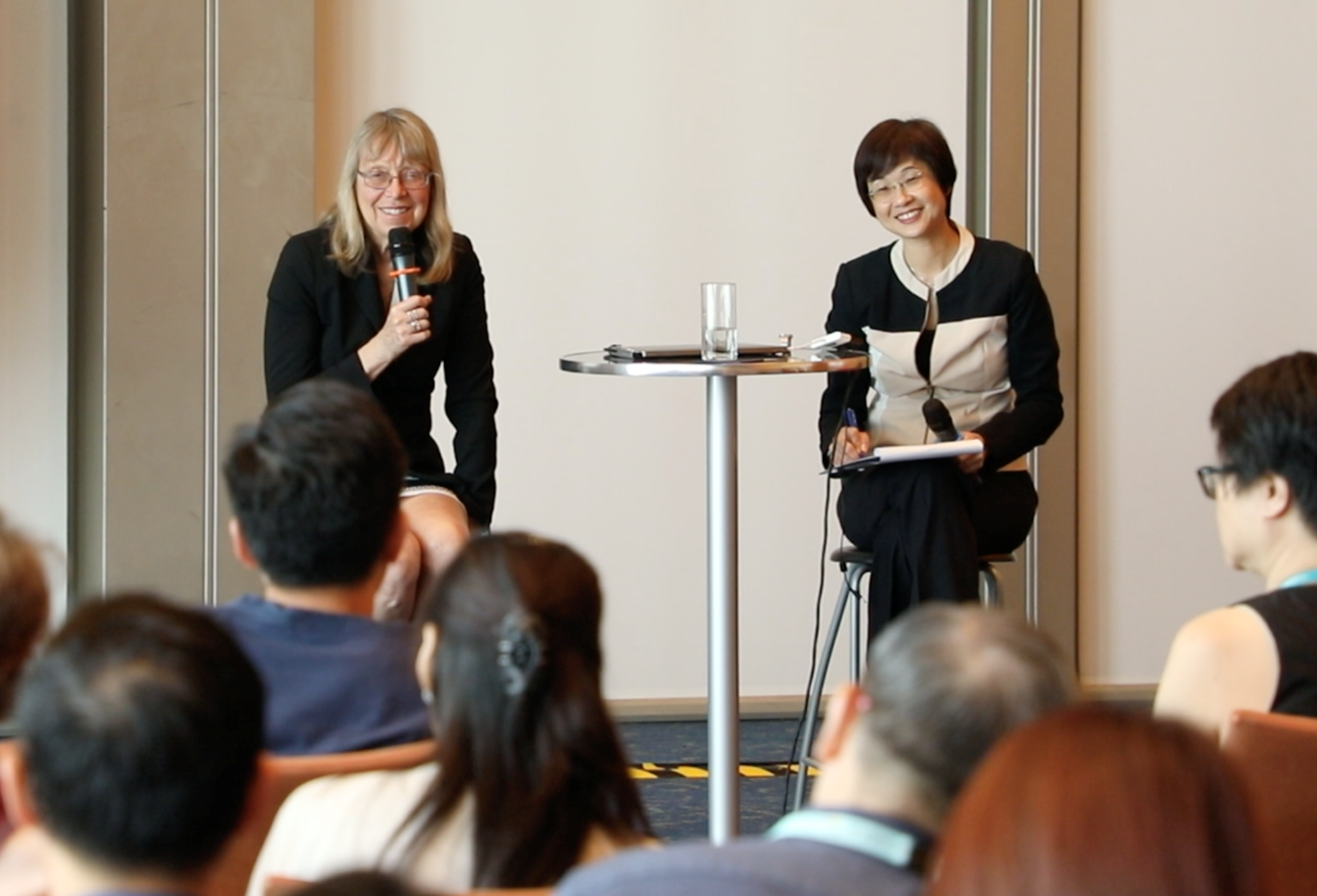
When
you trust and respect your kids, they learn how to be independent and kind, and
collaborate with others – this can set them on the path to success. It’s the
tried-and-tested method that Esther Wojcicki, an American author, parent and teacher
used in raising happy, healthy and successful children.
Parents are the child’s first teachers, says Esther Wojcicki, an award-winning educator who founded and has taught at the Palo Alto High School’s Media Arts Programme in California, USA for 35 years, and is mother to three daughters.
In town recently, Esther shared her wisdom at MOE HQ to an audience comprising parents and teachers. Very much against ‘tiger mom’ parenting, Esther uses the TRICK model in her parenting and teaching. TRICK stands for trust, respect, independence, collaboration and kindness, which she writes about in her book, How To Raise Successful People: Simple Lessons for Radical Results.
What is success?
But how does she define success? After all, her daughter Susan is head honcho at YouTube, Anne helms genomics-biotech company, 23andMe, while Janet is a paediatrics professor helping to save lives in Africa. However, Esther notes it’s not just money and long titles that make one successful.
“Success means that you feel empowered to accomplish your dreams, whatever they are. If you can do it at least 51% of the time, that’s success. Nobody can accomplish their dreams 100% of the time, not even if you have a billion dollars.
If you have good relationships and you can accomplish your dream, you are successful.”
TRUST leads to RESPECT
To show her daughters she trusted them, Esther often ‘keeps it zipped’, meaning, she will not interfere even when her kids choose questionable decisions, such as Anne wanting to be a professional babysitter many years ago right after getting her Ivy League degree. Months later, her daughter decided the idea wasn’t so great after all, and made up her own mind to accept a job offer that had come along.
“I trusted my children. I taught them everything I could to protect and take care of themselves in life. So at some point, as a parent, we should remove ourselves from the equation so they can sort out the solution eventually.
“If they need you, they will consult you. But don’t tell them what to do all the time. Children who feel trapped will not be happy.”
INDEPENDENCE is key
Having grown up poor as the daughter of Orthodox Russian-Jewish immigrants in the US, Esther’s childhood was not easy as during her time, corporal punishment was the norm, made worse as she was a girl in a male-dominated household. Once she became a parent, she was determined to let her three daughters have all the opportunities they need. However, they would have to go and get it themselves.
“I wanted to change my parenting methods from the way I was parented, which was to listen and obey. When I grew up, I knew I wanted a life in which I could make smart decisions and think for myself. So from when my kids were young, I taught them independence, including the importance of financial independence. All my kids were entrepreneurial at a young age, whether it’s selling lemons from our neighbour’s tree or things they made.
Likewise, I always thought their homework was just that: their homework. They did it without being prompted. If they didn’t do it, it was their problem. If they wanted my assistance, I would agree to help, but only if they directed me. I refused to do it for them.
“Kids should be in charge of their lives, not the parent. They get to make decisions about what they want to do, as long as there is no negative impact on anyone.”
Don’t dictate, COLLABORATE
Applying trust to children, respecting them for the choices they make, Esther believes this helps them build strong relationships, whether at home, in school or at work. And it enables them to work together: “Like my kids who had learnt to collaborate at a young age, whether they were being entrepreneurial as a team or helping around the house, my students learn about collaboration in their journalism course.”
She applies the same approach as a teacher. Letting young people make their own choices, Esther points out this gives them greater ownership and interest over their learning. “I do not lecture them. I let them decide what publications they want to run and how they run it, even if sometimes I’m unconvinced about their ideas. Many times, they prove me wrong. Often, they are so involved in what they do that I have to chase them out of the school building as it was getting late at night!”
KINDNESS is happiness
All this will not work without kindness, which Esther believes leads to greater empathy at home and in the world at large. “One question I have is, are kids today learning how to be kind? I taught my daughters to thank me, thank each other, and thank everyone who did something for them, whether in person, on the phone, or in a letter.
Gratitude is part of kindness; it makes everyone happy, to both giver and receiver. To teach gratitude, model it yourself, the same way you do with courtesy and politeness.”
Let failure be a learning experience
After decades of using her tried-and-tested TRICK model as parent and teacher, Esther knows this for sure: the act of trying and failing can only be a positive learning experience. “The number one way to make more kids feel empowered is to give them the opportunity to iterate, to redo something. You only learn by failing to do something, like what they say in business: fail fast. That means if you come up with an idea, and if it’s not a good idea, you want to know about it quickly so you don’t expend a lot of time and energy doing it.
“Sometimes you get it wrong, most of the time you get it right. You want to practice whatever it is you’re doing enough so that by the time you take the test, you’ll be successful, or at least to some degree.”

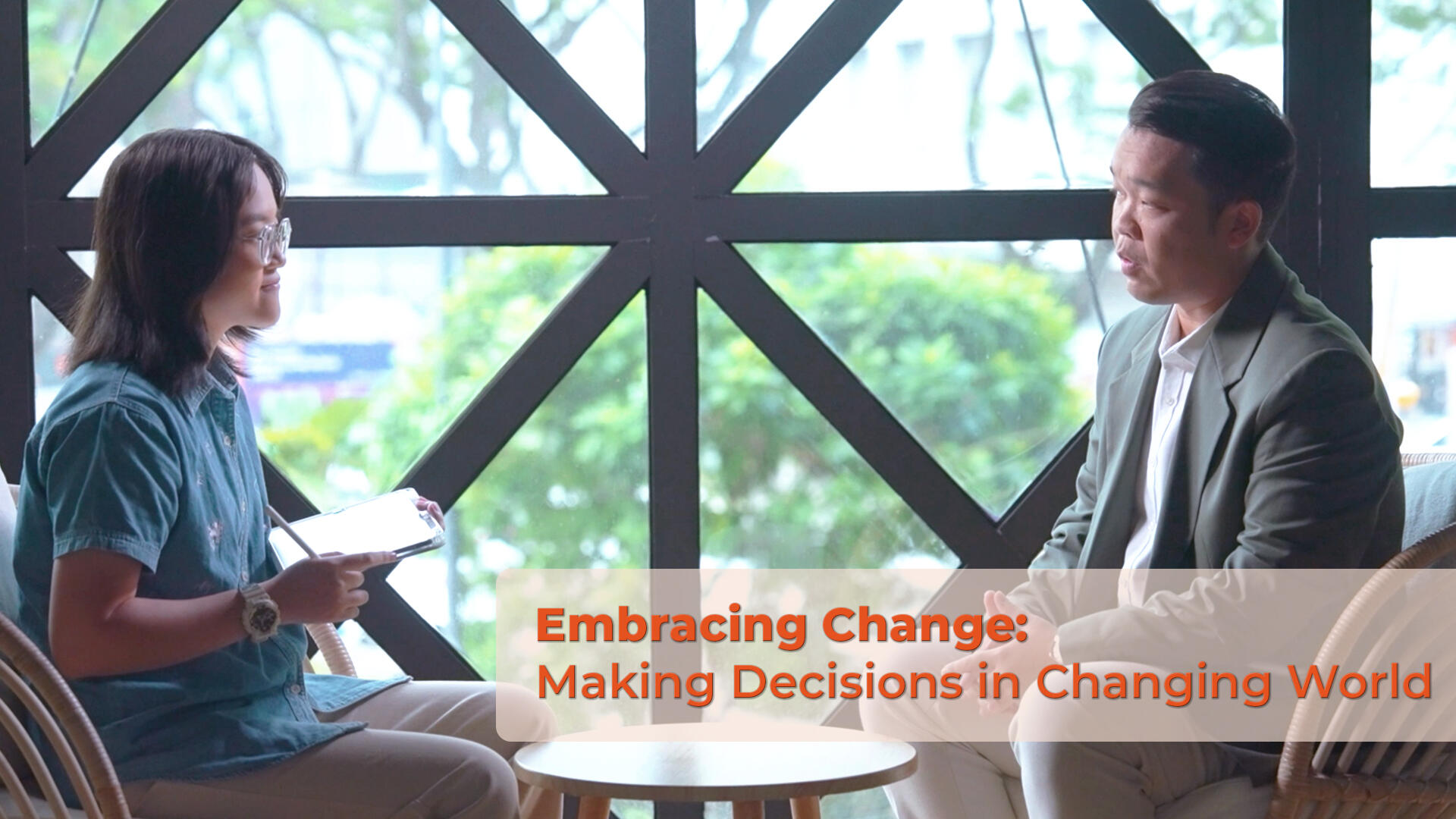
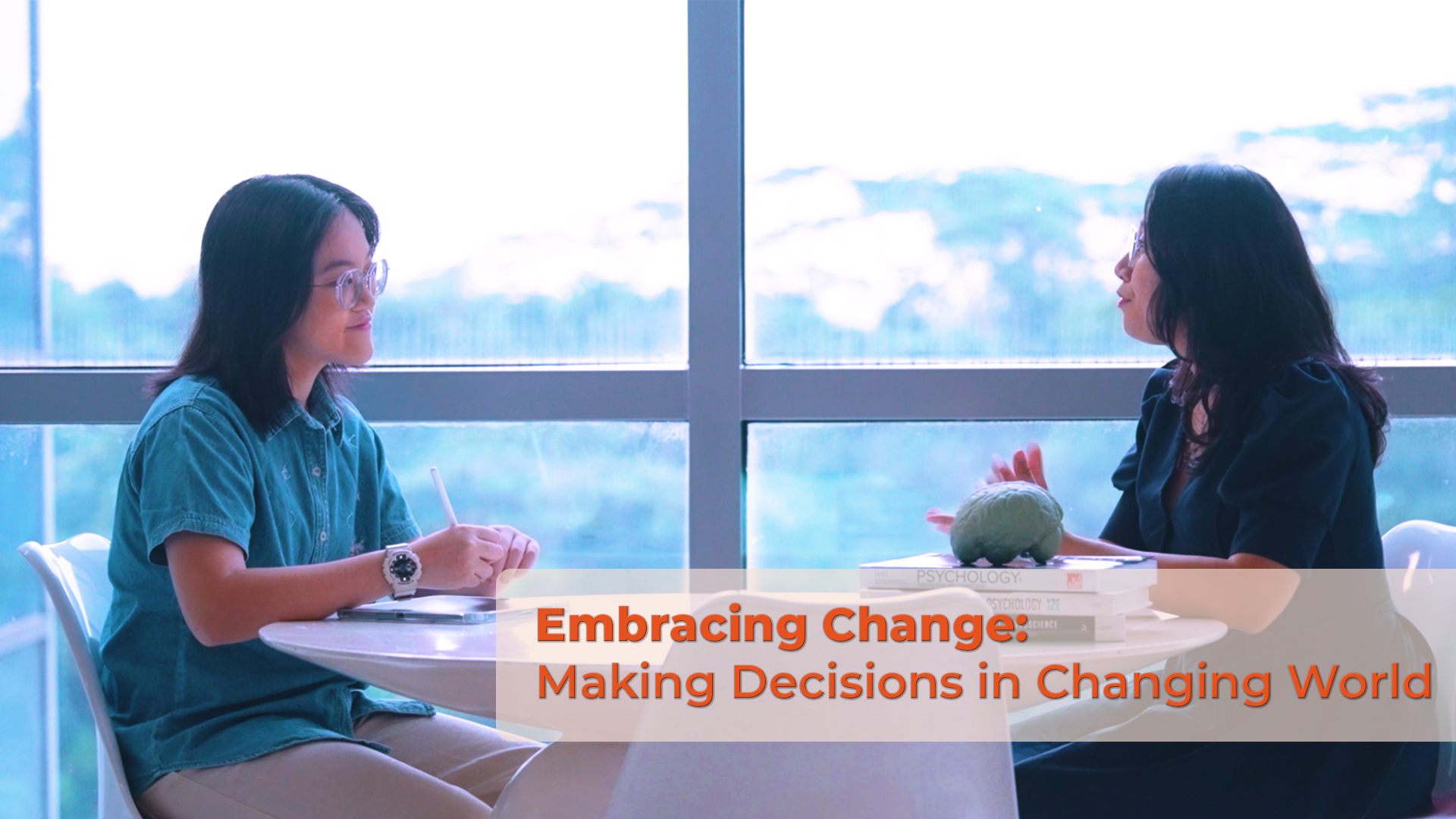
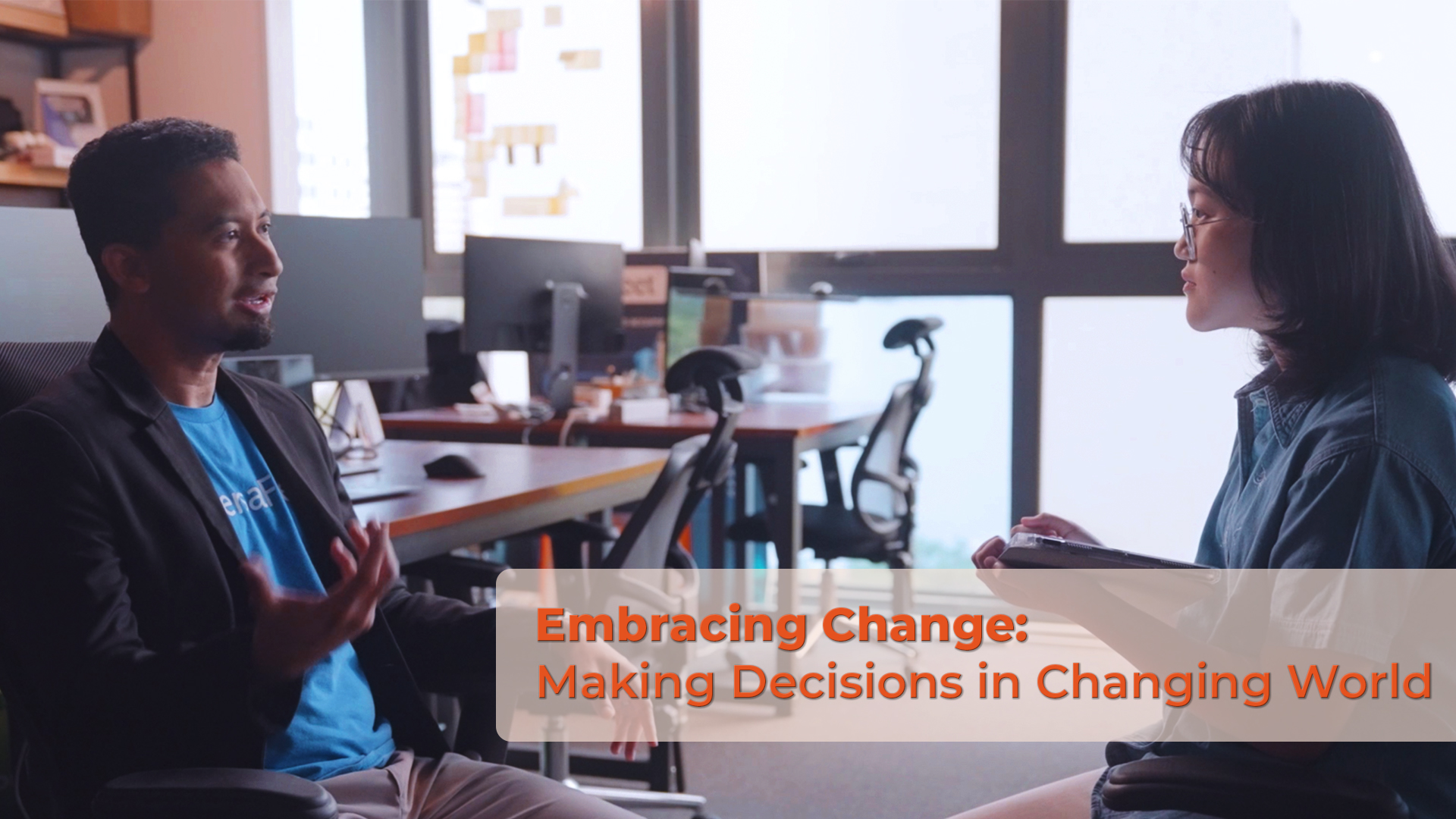
.jpg)
